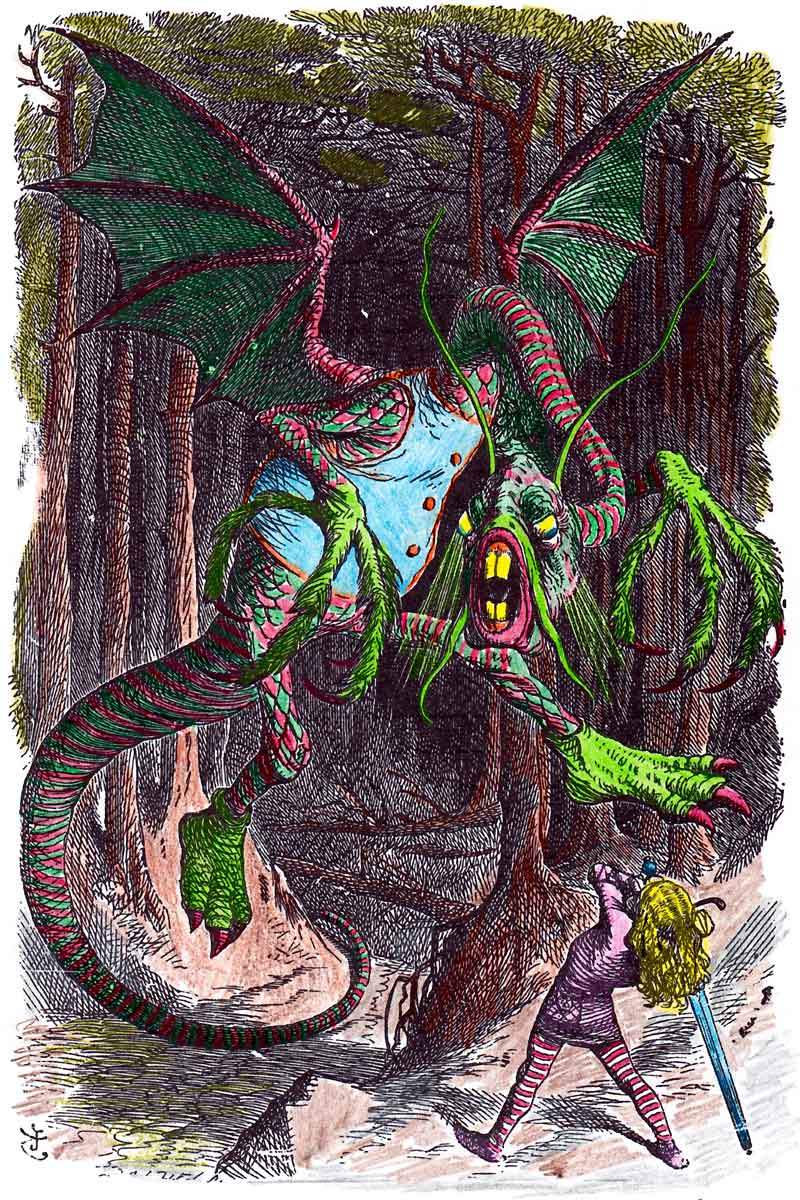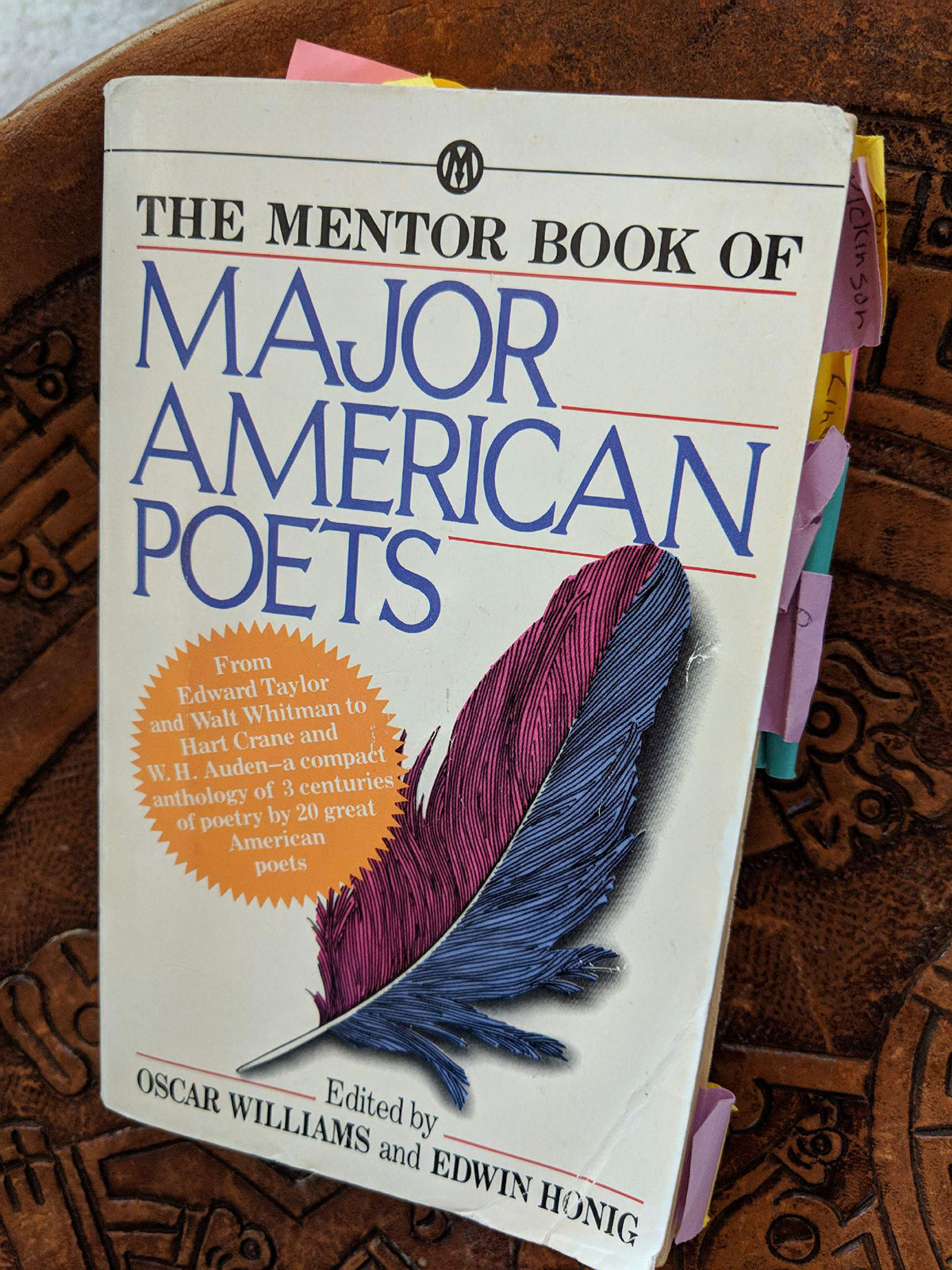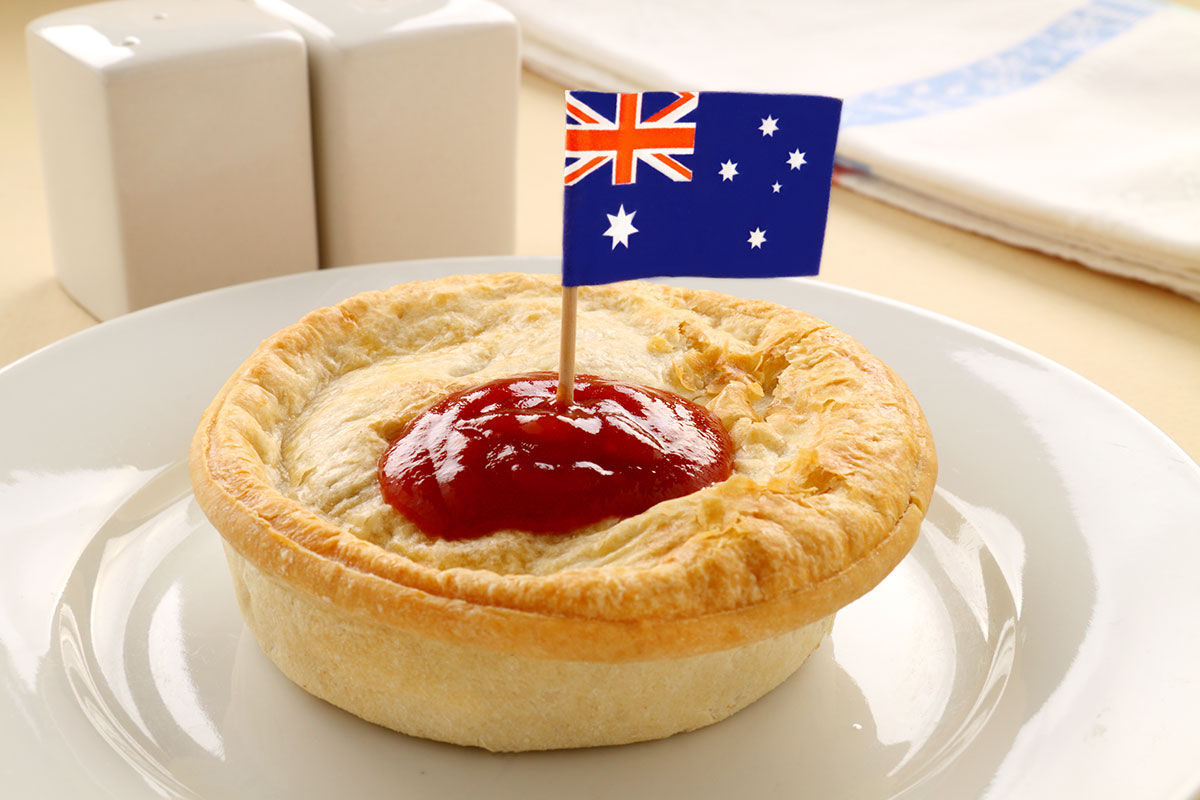“Jabberwocky” by Lewis Carroll, aka Charles Lutwidge Dodgson, is a children’s classic as well as a favorite poem for many adults. When I was a child, the nonsense words actually created a visual in my head. I heard “slithy toves” and could see the adjective “slithy,” which to me was something akin to slippery or slimy and the noun “toves” that seemed to be some kind of plant. I’m not sure if Carroll envisioned the same thing I did, but that doesn’t matter. I was entranced from the first nonsense word I read: “brillig.”
Lewis Carroll’s 1871 poem “Jabberwocky” is a type of nonsense-verse poem, which includes rhyming words and whimsy and yet it still creates a story. Carroll’s nonsense words follow English grammar rules. For instance, his word “frumious” looks like an adjective. Many adjectives in English end in “ious,” like, curious, scrumptious, and rebellious. His word “toves” acts like a noun.
Try making up a couple nonsense words yourself! Make up your own adjective that ends in “ious.” What about the made up words timious, chunious, or pharlious?
Many nouns end in “ness,” like happiness, emptiness, and wellness. Try to make up some of your own nouns. What about gooliness, finchness, or blumpness?
So, if I wrote a nonsense poem about “The Pharlious Blumpness,” you might not know what I was talking about at first, but you would know that “pharlious” is an adjective and “blumbness” is a noun. Easy!
Nonsense verse doesn’t have to include made up words, but the meaning or story remains silly. For instance, “He stood on a cloud / and felt himself proud,” or “There once was a clever young son/ who could balance the moon on his thumb…”
It’s just nonsense! But fun!
Jabberwocky
‘Twas brillig, and the slithy toves
Did gyre and gimble in the wabe;
All mimsy were the borogoves,
And the mome raths outgrabe.
“Beware the Jabberwock, my son!
The jaws that bite, the claws that catch!
Beware the Jubjub bird, and shun
The frumious Bandersnatch!”
He took his vorpal sword in hand:
Long time the manxome foe he sought—
So rested he by the Tumtum tree,
And stood awhile in thought.
And as in uffish thought he stood,
The Jabberwock, with eyes of flame,
Came whiffling through the tulgey wood,
And burbled as it came!
One, two! One, two! And through and through
The vorpal blade went snicker-snack!
He left it dead, and with its head
He went galumphing back.
“And hast thou slain the Jabberwock?
Come to my arms, my beamish boy!
O frabjous day! Callooh! Callay!”
He chortled in his joy.
‘Twas brillig, and the slithy toves
Did gyre and gimble in the wabe;
All mimsy were the borogoves,
And the mome raths outgrabe.
Poem From Through the Looking-Glass, and What Alice Found There (1871)
By Lewis Carroll
Much thanks to Wikipedia’s information to verify my facts.






